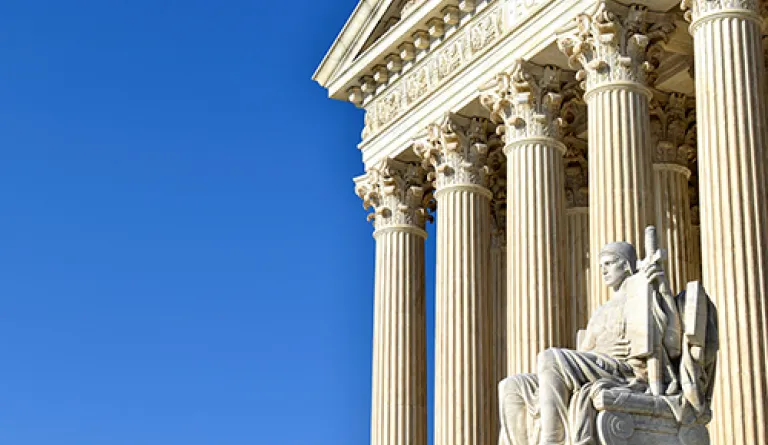Judicial Security Is Increasing Concern across the Country

In December, Congress passed the Daniel Anderl Judicial Security and Privacy Act, which will protect judges’ personally identifiable information from resale by data brokers. The act will also permit federal judges to redact personal information displayed on federal government websites, as well as prevent the publication of personal information by other businesses and individuals where there is no legitimate news media or other public interest.
The act is named for U.S. District Court Judge Esther Salas’s son, who was killed during an assassination attempt on her in July 2020. Judge Salas expressed gratitude upon the legislation’s passing, and remarked on the utmost importance of judicial security: “Judges, and their families, should not live in fear for doing the job they are sworn to do. As a nation and as a people, we cannot accept this. This legislation will make it harder for violent individuals to find judges’ addresses and other personal information online. By better protecting judges, the bill also helps safeguard the judicial independence guaranteed by the Constitution.”
Security for judges has been an increasing concern. In fact, it was the main focus of Supreme Court Chief Justice John Roberts’s recent year-end report on the federal judiciary. “Judicial opinions speak for themselves, and there is no obligation in our free country to agree with them,” Chief Justice Roberts wrote. “Indeed, we judges frequently dissent—sometimes strongly—from our colleagues’ opinions, and we explain why in public writings about the cases before us.”
“The law requires every judge to swear an oath to perform his or her work without fear or favor, but we must support judges by ensuring their safety. A judicial system cannot and should not live in fear.”
Last year, Reuters reported that judges in the United States have been increasingly under attack. According to the head of the U.S. Marshals Service, U.S. federal judges were the target of more than 4,500 threats and other inappropriate communications in 2021. In June 2022, John Roemer, a retired judge in Wisconsin, was killed in his home; later that month, Supreme Court Justice Brett Kavanaugh avoided a kidnapping (and possible assassination) attempt.
Across the country, state judiciaries are speaking out on this critical issue. Maryland Supreme Court Chief Justice Matthew Fader pushed for legislation that would require the removal of home addresses and phone numbers of current and former Maryland judicial offers from the internet, citing violence and threats of harm. New York acting Chief Administrative Judge Tamiko Amaker recently testified that judicial threats have increased 40 percent statewide over the past two years, from 225 incidents in 2020 to 322 in 2022. And, earlier this month the Idaho Supreme Court released a statement that state judges, their families, and court employees have been the targets of repeated harassment and threats.
Our country’s justice system relies, in part, on the independent, impartial, and qualified judges who decide cases according to the facts and law—not to special interests, powerful majorities, or coercion from outside forces. As Keith Swisher, Professor of Legal Ethics at the University of Arizona James E. Rogers College of Law wrote for IAALS in 2016, “This independence has supported our judges in protecting some of the least powerful and most oppressed individuals and groups who come before our courts.”
Judges also play a critical role as agents for justice system reform—former Chief Justice Bridget Mary McCormack has written, “As direct witnesses to the daily experiences of people navigating legal problems, judges have critical information about what reforms are needed, as well as ideas on how such reforms can be implemented.” She urged that “effective law reform depends on judges’ contributions and they are ethically obligated to improve the judicial system over which they preside.” But judges can only fill this critical role if they feel safe, and know they won’t be the subject of harassment, threats, and attacks. These attacks aren’t just a threat to judges, but a threat to the rule of law—the bedrock of our justice system.
